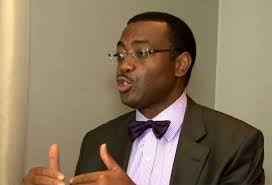The African Development Bank (AfDB) and its East and North African Governors today restated the need for urgent measures by African governments to match the continent’s growing population and youth unemployment.
The Governors, who likened the rising population to a “ticking time bomb”, at their two-day consultation held in Abidjan, Cote d’Ivoire, however, described the continent’s growing young population as a potential growth engine for the world.
A news report circulated by the African Press Organisation (APO) Group on behalf of the AfDB quoted the President of the bank as saying that “the good news is that the solution is within our reach and will require investments.”
At the end of a two-day consultation, the AfDB and the Governors discussed strategizes for closing Africa’s $170 billion infrastructure investment gap.
According to the news report, the Bank and the Governors noted the need to bridge the investment gap, ensure inclusive growth, and create employment for the continent’s population, and consequently endorsed the African Development Bank-led African Investment Forum and described it as a timely opportunity to catalyze investments into projects and attract social impact financing to Africa.
Tanzania’s Minister for Finance and Planning, Isdor Mpango, called for closer involvement of the private sector in financing development on the continent.
“The African Development Bank is well positioned to advise and assist Governments and the private sector to come up with bankable projects,” Mpango said, calling for direct resources to provide budget support and investment opportunities.”
Through the African Investment Forum, scheduled for November 7-9, 2018 in Johannesburg, South Africa, the Bank and its partners intend to showcase bankable projects, attract financing, and provide platforms for investing across Africa. The forum will bring together the African Development Bank and other global multilateral financial institutions to de-risk investments at scale.
“A uniqueness of the African Investment Forum is that there will be no speeches. The only speeches will be transactions,” said President Adesina.
Rwanda’s Minister of Finance and Economic Planning, Claver Gatete said: “The African Development Bank has already discussed the concept of the African Investment Forum with us. The Rwandan Government takes this Forum very seriously.”
“Jobs will come from industrialization. The new approach using the African Investment Forum to de-risk the sector and attract investors is the way to go,” said Kiplagat Rotich, Kenyan Finance Minister.
13 per cent of the world’s population is estimated to live in sub-Saharan Africa today. That number is projected to more than double by 2050. Four billion (or 36 per cent of the world’s population) could live in the region by 2100, according to the UN Population Division. Africa is projected to have over 840 million youth by 2050 with the continent having the youngest population on earth.
Adesina said: “We have 12 years left to the SDGs. It is an alarm bell because if Africa does not achieve the SDGs, the world won’t achieve them. The African Development Bank is accelerating development across Africa through the High 5s. We are deepening our reforms. We deepened our disbursements to the highest levels ever last year and we are leveraging more resources for Africa.”
As part of the Bank’s High 5 agenda, 13 million African women have benefitted from new electricity connections and 23 million from improvements in agriculture. Also, 10 million African women have benefited from investee projects
An analysis of the African Development Bank’s impact from 2010-2017 indicates that 27 million Africans gained access to new electricity connections. 899,000 small businesses were provided with financial services. 35 million have benefitted from improved access to water and sanitation.
With a substantive capital increase, the AfDB will be able to execute its robust pipeline of operations (15bn in 2018 alone), including infrastructure and regional integration projects.
The prospects for 2018-2020 are bright, with 50.3 million people benefitting from improved access to transport compared to 14 million in 2017. Also, more than 35 million people are expected to benefit from new or improved electricity connections, in contrast to 4.4 million delivered in 2017.
Africa is projected to have over 840 million youth by 2050 with the continent having the youngest population on earth






